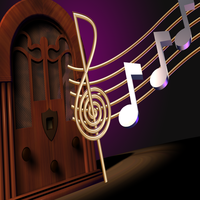Music Therapy

Music therapy has been in use for millennia: in the Bible David played his harp to try to ease the suffering of King Saul and there are whole systems of musical healing in the traditional healing systems of China and India. I have commented before on the extraordinary power of music.
Apart from our experience, there is an astonishingly large and diverse body of scientific literature on music therapy, not just to help individuals, but also on possibly improving the performance of health care providers. Many surgeons attest that they do a better technical job if they are listening to music.
This month’s issue of the British Journal of Psychiatry carries an interesting article about the value of music therapy in people with schizophrenic illnesses. Though small, it indicates that music therapy can be helpful, and speaks to the integrity of many components of the nervous systems of people with this large and diverse group of problems.
There is good evidence that music therapy may help with:
- Treatment-related distress in people having treatment for several cancers
- Autistic spectrum disorders
- Calming people who are having cardiac catheterization procedures
- Pain relief
- Distress after total knee replacement
- Pain after leg fractures
- Apathy in people with dementia
- Sleep and heart rate patterns in pre-term babies
This is by no means an exhaustive list: I have found several hundred studies, many of which are quite well designed. There are also several professional organizations such as the American Music Therapy Association.
It is clearly important to choose the right kind of music: I would guess that Metallica is less likely to soothe the fevered brow than Steve Halpern.
Background music can be wonderful for improving the ambience of your home or workplace. But you can also be more focused in your use of music to help or support other types of health and wellness programs.
Select the music that you like: there are now many wonderful programs geared toward using music for healing: I can give you a list of some that I have tested. The good ones will entrain your heart rate, some of your brain rhythms and the subtle systems of your body.
If you can find 20 minutes, the right music listened to while sitting or lying with your eyes closed can be as effective as a short meditation. For this to work well, it is best to use good quality headphones and to allow the music to wash over and soak you like a warm bath, while gradually slowing and deepening your breath.
I’ve also made extensive use of specifically chosen music during massage, acupuncture, yoga, and while practicing t’ai chi ch’uan and qigong. Some purists don’t like using music while doing these activities, but I’ve usually found that music can enhance each type of practice.
Try it and see what you think.






